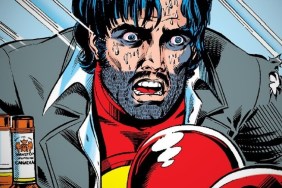
We review FOX’s series adaptation of Vertigo comics series Lucifer
There is a lot of potential drama in the idea of Lucifer’s reaction to his role in Christian mythos, what he thinks about what he’s done and what it is he actually wants (within the bounds of proscribed actions). Milton knew it way back when; Neil Gaiman did too when he took the notion to post-modern levels wondering whether the devil might not even want the role he had been given and would one day grow tired of it. It was the later idea that prompted Mike Carey’s examination of the character adrift in the City of Angels, trying to find a reason to exist after shrugging off the reason that was created for him.
It’s an interesting if etherial basis for a complex character study and one that would seem to be right at home in today’s so-called golden age of television where long-form character work less tied down by classic notions of good guys/bad guys is becoming the norm. On basic/premium cable at any rate.
On network television, where the requirements for status quo plot arrangements, identifiable good guys and bad guys, clear moral victories and frequently lock-step procedural elements are part and parcel of the deal (at least if maintaining viewers is any sort of goal), it’s much more difficult fit. And by difficult I mean so ill-conceived its difficult to believe a pilot was actually made much less a series was greenlit from it.
The network television version (set to debut as a mid-season series in 2016 on FOX) takes the notion of Lucifer (Miranda’s Tom Ellis) quitting his job to open a bar and decides that’s a bit to quiet and unmotivated for a modern audience and so introduces the completely logical decision to give the devil a hobby … fighting crime. And as ridiculous as that sentence is to write, it’s even worse to observe.
A lot of it stems from Lucifer’s egregious misconception and mis-casting. Attempting to ease the transition of the devil into the role of the good guy, the series re-imagines him as less the prince of darkness and more an immortal jerk who brings people’s innermost desires to the surface where they have great difficulty not acting on them – often to his amusement but usually to little other effect (as Lucifer ruining people’s lives for fun would make it much more difficult for him to play the hero). It removes the characters innate sinisterness, but it also removes his gravitas as well, leaving him with only one emotional outlet for the entire pilot: smugness.
Or that could just be the only way Ellis (best known prior for a few seasons of a sitcom on the BBC) can deliver his lines. While he does delivers his frequent witicisms well (Lucifer not only has to carry off the crime fighting, he’s also the comic relief) and genuinely relishes introducing himself as Lucifer Morningstar as well as bluntly and truthfully explaining what and how he is doing what he is doing whenever asked under the (correct) assumption that no one will either believe him or be able to stop him, Ellis will never make anyone believe he is an immortal angel who spent eons coming up with new, original ways to torture people. It’s either not in his skill set or not being asked of him or (more likely) both.
That alone should be enough to sink any show, but “Lucifer” is filled with a stack of additional elements that feel like a creator groping for ways to define his characters (or because they sound good during a pitch) and failing miserably. While investigating the shooting death of a singer who he once did a favor for, Lucifer soon finds himself working with an impossibly young detective (Lauren German) who in a former life was a teenage actress most well known for a teenage sex comedy in which she walked around naked (though at least it addresses the series’ female lead being many times more attractive than others in her field). She also happens to be immune to Lucifer’s charms, particularly his method of compelling people to speak their desires, revealing in him the deep-seated psychological issues which caused him to leave Hell in the first place and for which he decides to start seeing a shrink. It’s as if the series’ ambitions amounted to little more than being a dark version of “Castle,” just without any wit, charm or intelligence.
“Lucifer’s” failure on almost every level is largely a repeat of the same issues which doomed the last attempt to translate a classic Vertigo series to television, last years ill-fated “Constantine.” Both took morally ambiguous characters who bathed in worlds of grey and tried to squeeze them into a milieu which is only comfortable with good guys who wear white hats and bad guys who wear black. It’s an ill-fit on almost every level and it shows.
But at least there’s “Preacher” to look forward to.








